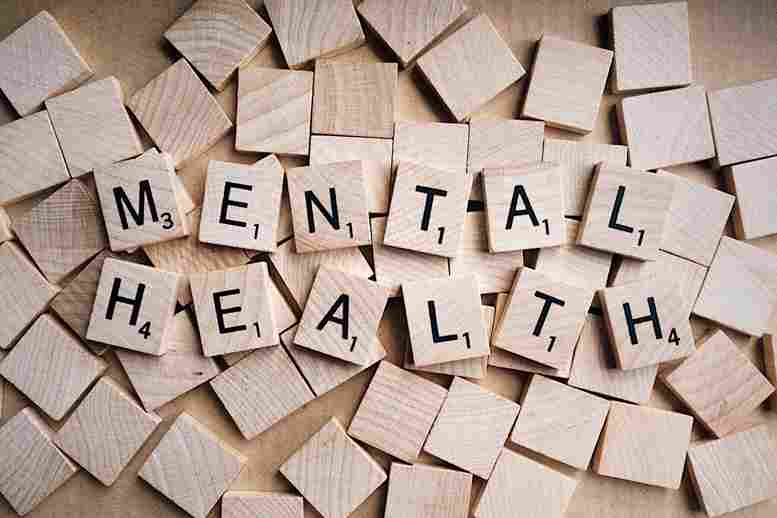How to Deal with Your Child’s Mental Health

It wasn’t too long ago that words like ‘dyslexia’ and ‘ADHD’ were quite unheard of in the Indian classroom. Mental illnesses like autism, bipolar disorder and even anxiety and depression weren’t that common – or commonly talked about – either. But the world has progressed, these issues are occurring more frequently than ever, and – thankfully – people are slowly and steadily beginning to open up about their mental health. Now more than ever, it is important to pay close attention to near and dear ones and create an encouraging, friendly environment that makes them comfortable enough to speak up about their issues.
However, mental health issues don’t just affect adults; children often fall victim too. As a parent, you can reach out to your children and encourage them to open up about their mental health. We’ve created a list of tips to guide you through this:
How Asian Parents Approach Mental Illnesses

It has been observed that Asian parents do not necessarily approve of seeking medical help for their children. This has been attributed to many factors such as culture, values and the impact of societal pressure and expectations of the family from the child. However, in recent times, this dynamic is gradually changing. Parents are now reading more material on mental health and are open to seeking medical help for their children! However, a few parents still need to be nudged in the right direction towards identifying, understanding, and dealing with their child’s mental issues.
In 2018, India was announced as the most depressed country in the world. One out of four Indian children suffers from depression, which means about 25% of Indian children are depressed. Children grappling with mental illnesses struggle with everyday tasks like socialising, learning and concentrating. This may hamper the child’s growth and impact their adulting years as well.
As experienced counsellors, it’s easier for us to understand a child’s behavioural anomalies easily. However, parents may not be able to spot such anomalies in a neutral or objective manner. Therefore, we can take you through the signs you should be spotting in your children.
- Sudden changes in behaviour, constant behavioural issues at school or when interacting with others
- Hyperactive traits
- Sudden changes in sleeping habits
- Nightmares
- Feeling down or morose all the time
- Constant fatigue, tiredness
- Extraordinary insubordination or hostility
- Throwing tantrums
- Loss of appetite
- Sudden changes in weight
- Stress over weight gain
- Social withdrawal and isolation
- Substance abuse
- Hallucinations or psychosis
In a study by JAMA Psychiatry, it was observed that youngsters and adolescents with mental issues have problems with general mental wellbeing, monetary troubles and social issues. Those with milder indications were more likely to have issues as grown-ups. According to the same study, most adults with psychological issues faced some kind of mental issue when they were younger – it wasn’t necessarily the same one they were facing as adults. However, the fact remains that the mental health issues one faces during childhood can have an impact on their adulthood as well. These problems could range from clinical depression, social anxiety to even delinquency.
Mentoria helps you navigate through your child’s career crossroads with ease. Talk to our career counsellors to get personalized step-by-step guidance for their future career path.
Here are a Few Ways for Parents to Deal with Mental Health Issues in their Child.
A parent is the most trusted person in a child’s life. If children lean on their peers for support, they could get the wrong advice or their peers might be unable to identify and deal with their issues.
1. Accepting that your child may have a problem:
It’s hard for parents to accept that something might be ‘wrong’ with their child. But parents need to understand that mental illness needs to be treated just like any physical illness. Just as a parent wouldn’t ignore a fever or a persistent cough, they shouldn’t be ignoring a mental health concern.
2. Encouraging honest conversations:
Parents need to listen to their children without judging or jumping to conclusions – only then will the child feel comfortable and secure enough to share what’s really going on with them. If a child doesn’t want to go to school or classes, it doesn’t always stem from an aversion to studies – there might be an underlying issue that parents need to figure out.
3. Covering the basics:
Are they really sick? Are they hungry? Are they being moody because they had a tiff with someone? The parents must cover the basics before they consider bringing their child to a counsellor.
4. Thinking objectively about the child’s environment:
Is the child dealing with some trauma or are they in a negative environment? Children spend a lot of time at home, in school or a creche. Parents must try to understand whether their child went through something they don’t quite grasp and are dealing to make sense of it.
5. Picking the right time to help them:
If parents straight up scold the child when they’re acting up, it’s going to invite more difficult behaviour. Allowing them to calm down and then having a word with them could be much more effective. Parents should be patient and wait for the right time to broach the topic.
6. Maintaining a calm approach to the issue:
If the child’s issues are a result of some trigger that’s not in their control, parents should help them find ways to calm themselves. Deep breathing, sitting down, concentrating on one’s breath, etc., are a few things parents can help the child practice to calm them down.
7. Creating routines:
Children with mental health issues, especially social anxiety and autism, prefer having a set routine. Parents need to work with their children to create a schedule and communicate changes beforehand to avoid making them anxious, thus giving them ample time to adjust.
8. Keeping in touch with teachers and counsellors:
A child spends a lot of time in school. Teachers are good at spotting behaviour patterns that may be indications of mental health problems, and counsellors can give them deeper insights. Parents need to talk to educators regularly for updates, and listen without getting defensive.
9. Seeking medical help:
Scheduling an appointment with a therapist is as common and necessary as getting a physician for a child. Parents could look for someone they trust, or even reach out to the child’s paediatrician for recommendations.
A child’s mental health is as important as their physical health. Children are more sensitive and perceptive than we give them credit for. They undergo problems and will not always be equipped to deal with them. It is a parent’s responsibility to ensure their child’s wellbeing.
Parents should read more about common mental health issues children face, so that they can stay updated on the various medical experts they could approach.
Sign Up for Mentoria - India’s Most Reliable Career Discovery Platform
Through Mentoria, students can develop their confidence, self-awareness, and communication skills. Our psychometric assessments can help students to learn more about their personality traits, interests, and values, which can help in career choices. And through our workshops for employees and career guidance and counselling for their children, we’re on a mission to transfrom lives of our future leaders from clutter to clarity, one aspirant at a time.







